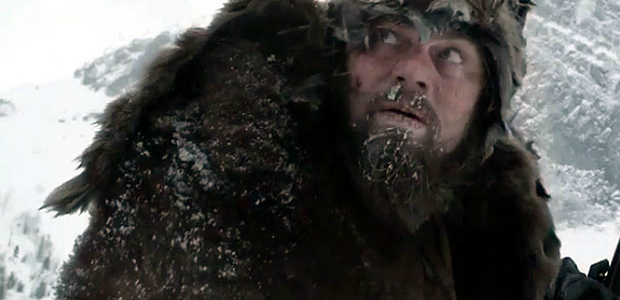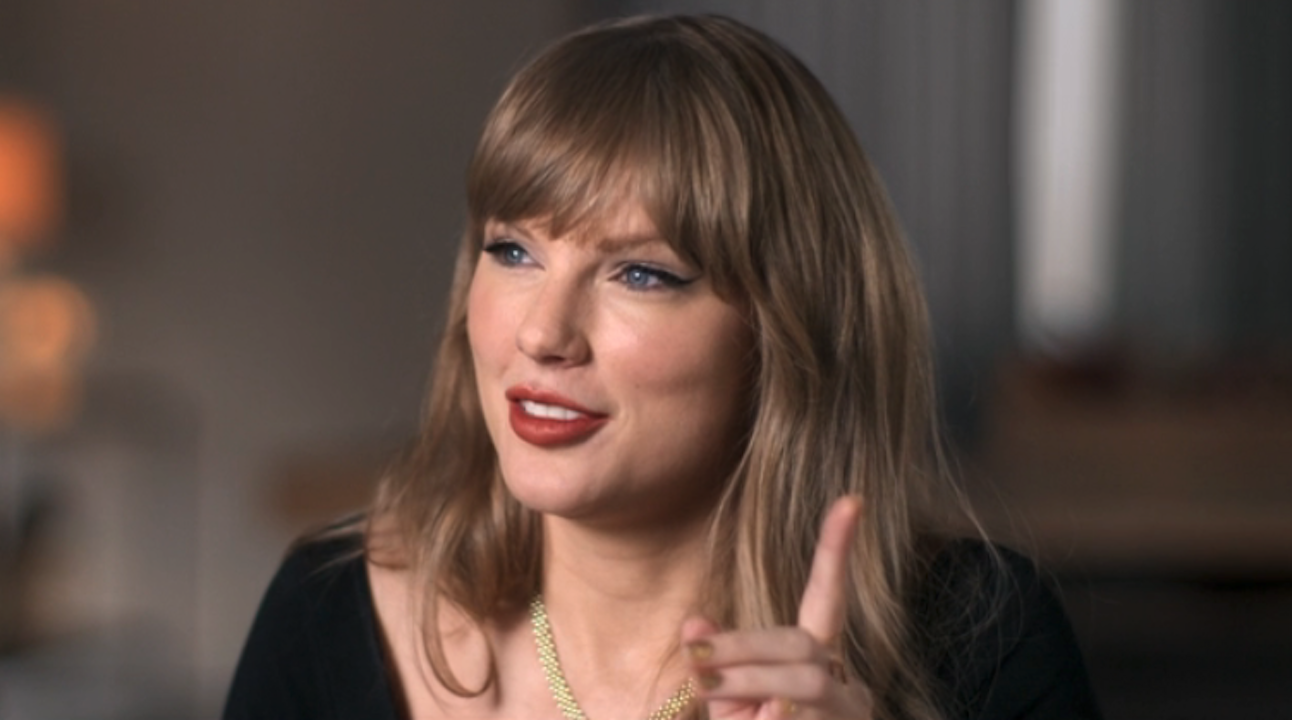The first thing you’ll notice are the trees. They spring from a placid body of water and stretch all the way to the heavens, beyond the top of the screen. Next, the natural sunlight catches your eye, as Oscar-winning director Alejandro Inarritu (Birdman, Babel) and his Oscar-winning cinematographer Emmanuel Lubezki (Gravity, The Tree of Life, Children of Men) immerse us, instantly, in a serene forest setting. It’s all so beautiful, a peaceful watercolor of an opening that wraps around your field of vision and invites you to step through the scene and appreciate the natural beauty photographed by the lens.
You’d instantly regret such a trip, though, for this is the only time The Revenant flirts with the terms “peaceful” or “serene” over the course of its punishing, visceral, masculine, grisly and utterly captivating run time. What remains is a powerful trip, if your mind and spirit can endure it.
If memory serves, the first non-natural prop to pierce the tranquility of that extended opening shot is a rifle. Appropriate. It is held by a hunter, who is part of a larger party seeking animal pelts on the frontier during the 1820s. Within seconds, the men in the party – led by Andrew Henry (Domhnall Gleeson) and his expert tracker Hugh Glass (Leonardo DiCaprio) – are viciously attacked by natives. The peacefulness is shattered. Arrows and bullets torpedo through body parts as men flee to the relative safety of a nearby boat. We’ve barely settled in, and the expedition already has been reduced, the survivors barely totaling in the teens. They are on their heels. They’ll remain in that position for the rest of the film.
Glass is the man who has been tasked with guiding this party to safety, but eventually he finds himself in serious trouble of his own. While scouting the land, he happens on bear cubs. Then, he happens on their ferociously defensive mother. Stories preceding the release of Inarritu’s The Revenant have associated the term “bear rape” with the movie’s brutal, unrelenting sequence – and while that leap to associate is slightly miscalculated, it’s not entirely wrong. The attack lasts for what feels like an eternity, with Glass’s screams matching the protective bear’s growls beat for beat. The animal is CGI, but the torment conveyed is real in every sense. There’s no question Glass is broken – physically, mentally and spiritually – after this attack, and Inarritu (as well as DiCaprio) embraces everything painful and uncomfortable about the sequence as it plays out.
But Glass doesn’t die from his wounds. He only wishes he did.
The Revenant ends up becoming a revenge story, and while I don’t want to tell you why Glass seeks payback against someone – in case you don’t know that part of the story – I do want to elaborate on who Glass is going after. John Fitzgerald (Tom Hardy) is his polar opposite in the group, the headstrong member of the drastically damaged hunting party. He’s unhappy that they have been attacked. He’s unhappy that they no longer have as many pelts as they once did (because it means he might get paid less than he believed). And he’s really unhappy that they’re now responsible for transporting a near-dead tracker who no longer can help the group get home. When given the chance to do something unthinkable, Fitzgerald does it – casting a lot that will pit him against Glass in a third-act showdown we slowly build to as the tension mounts and the moral weight of the film shifts.
To say that there’s more to The Revenant beyond that would be a lie. Working off a novel that is based on a true story, Inarritu and screenwriters Mark L. Smith and Michael Punke construct a straight-line vengeance thriller that’s marked by the environmental difficulties keeping one man (DiCaprio) from his sworn enemy. But damn, those natural obstacles! The bear is but the tip of the iceberg. Left for dead on a frigid tundra, a seething DiCaprio literally crawls his shattered frame through mud, snow and raging waters, all with a burning intensity in his eyes (and in the spittle that’s constantly flung from his lips). Glass’s ordeal is torture, both on the main character and – if I’m being honest – on the audience. But it’s by design. The Revenant strikes me as DiCaprio attempting karmic balance for his wonderful personal life. Sure, he parties with supermodels off screen. But look at the punishment that he’s willing to endure on screen. (Hopes for Oscar’s approval, notwithstanding.)
Your Daily Blend of Entertainment News
As good as DiCaprio is at tapping directly in to Glass’s anger, Tom Hardy is that much better as the sinister Fitzgerald. Admittedly, Hardy has more to play with in his character, from his selfish motivations to the unearned bravado he finds when faced with the notion that Glass is on a mission to kill him. What’s fascinating (and most impressive), however, is that Fitzgerald resembles a type of persona Hardy has played before on screen – arrogant, aggressive, boastful, physically imposing – yet he finds completely fresh ways to portray the man, so that we’re witnessing yet another side to this complex and fascinating performer. Hardy does a lot by doing a little, and in this instance, it’s the right balance to DiCaprio’s rabid drive.
The Revenant won’t be for everyone. Though technically impressive -- filled with breathtaking cinematography and those long, operatically-staged shots Inarritu chases nowadays – the macho genre picture is unapologetically cruel and startlingly realistic with its violence. It offers the least amount of emotion necessary to get us to invest in Glass’s vengeful quest, but those quandaries are present. When it occasionally drifts away from the Glass-Fitzgerald conflict, it loses its momentum. And it puts its lead actor through a physical and emotional grinder, asking the audience to endure his suffering on every step of the difficult journey. I can pinpoint the moment that I personally waved my own white flag, unable to take any more punishment in service of Inarritu’s story. (Star Wars fans will recognize it as the “tauntaun” sequence.) But the eventual Hardy-DiCaprio confrontation – and the open-ended finale – just about justifies the cinematic suffering. Just about.

Sean O’Connell is a journalist and CinemaBlend’s Managing Editor. Having been with the site since 2011, Sean interviewed myriad directors, actors and producers, and created ReelBlend, which he proudly cohosts with Jake Hamilton and Kevin McCarthy. And he's the author of RELEASE THE SNYDER CUT, the Spider-Man history book WITH GREAT POWER, and an upcoming book about Bruce Willis.

